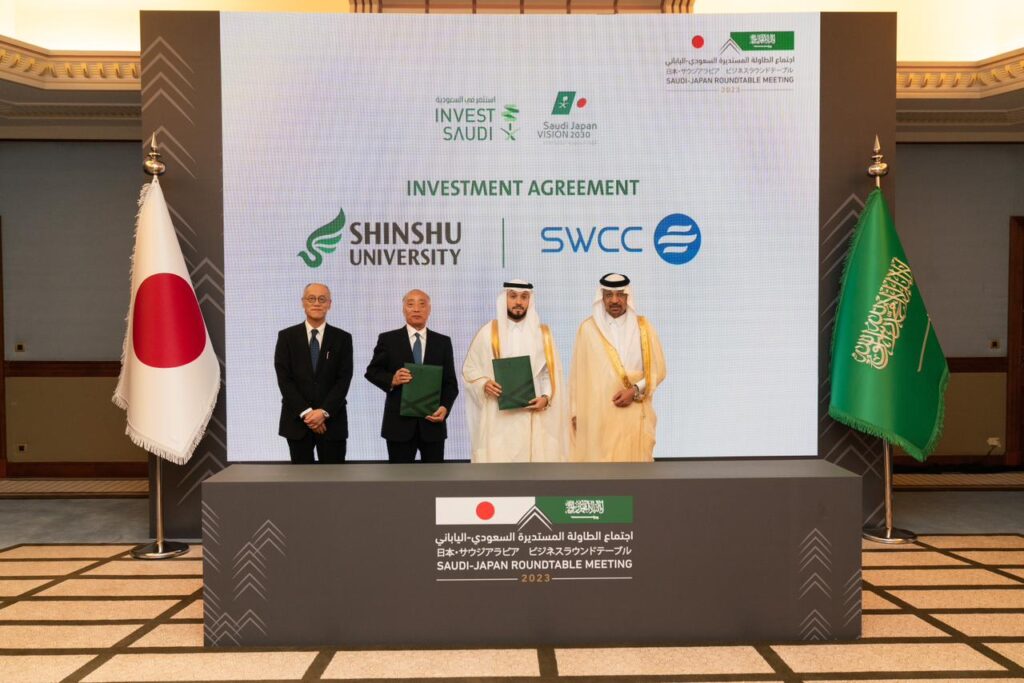
- ARAB NEWS
- 31 Jul 2025

JEDDAH: Saudi Arabia’s Saline Water Conversion Corporation and Japan’s Shinshu University signed a joint memorandum of understanding within the framework of their efforts to develop the field of seawater desalination, during the Saudi-Japanese round table meeting on July 16.
The MoU was signed in the presence of Minister of Investment Khalid bin Abdulaziz Al-Falih and the Ambassador of Japan to the Kingdom, Iwai Fumio, Tariq Al-Ghafari, Deputy Governor for Research and Innovation Projects, and Senior Professor in the joint research team, Professor Ando Morenobo, representing the university in Jeddah.
The memorandum aims to develop reverse osmosis technologies for seawater and related processes, improve pollution resistance and energy consumption, and expel salts from washing processes for osmosis technologies, in addition to developing innovative technologies, such as zero salt reflux (ZLD), micro-membranes, and seawater mining technologies. The two parties will also cooperate in the use of advanced environmentally friendly renewable energy for water applications and any other field agreed upon.
The memorandum is one of the cooperation programs for “desalination” with Japan. It included the mega-ton project and the agreement to establish the largest factory in the Middle East, the second of its kind in the world, to localize the reverse osmosis membrane industry for desalinated water.
The signing of a number of agreements in this framework supports its actions and enhances its capabilities to build effective international partnerships to achieve sustainable water and environmental security in its comprehensive concept.
The desalination process succeeded in employing nanotechnology in mining seawater and extracting precious metals and salts from it such as (magnesium, cesium, rubidium, and barium), and benefiting from them in the manufacturing industries, and building a “bromine” production system with the specialized chemical company to enhance economic feasibility in line with the Kingdom’s Vision 2030.